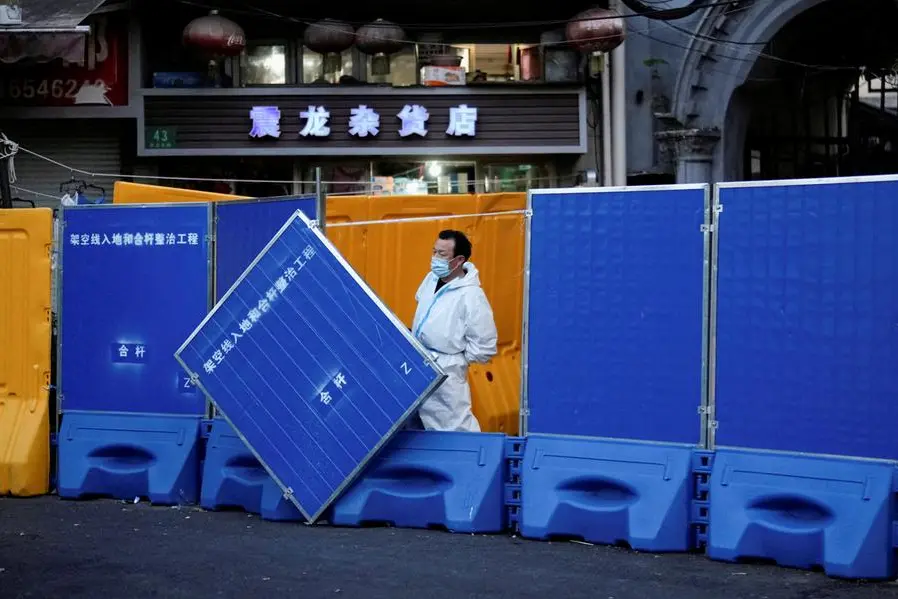PHOTO
BEIJING - Earlier this month Chinese truck driver Dong Zhigang finished a job in the coastal city of Nantong and began what should have been a four-hour journey north to his home village in Lianyungang, Jiangsu province. On Friday, nine sticky days in his cab later, he still had not made it home.
Like many Chinese truckers, Dong, 30, had fallen victim to some of the country's recent hardline anti-COVID measures and disruption as local authorities scramble to maintain China's zero-COVID policy.
He got as far as a highway exit leading to his village before he was told by officials that to enter he would need to do 14 days of centralised quarantine costing at least 240 RMB per day followed by a further seven days of home quarantine.
"We could not afford this," the father-of-two told Reuters, referring to the group of four to five truckers he waited with.
Dong had a negative COVID test result that day and had not been to any medium or high-risk areas. But the officials were in no mood for discussion.
He said he was told: "I don't care where you have come from."
Locals provided the drivers with two takeaway meals a day but there were no toilet or shower facilities.
On Thursday evening a group of over a dozen police in riot gear including several SWAT officers told Dong and his fellow drivers that they had to leave their spot immediately or they would be fined and would lose their driving licenses.
The officers said they did not care where the drivers went, according to Dong. So the group acquiesced and moved to another exit further up the highway.
Later, a village official contacted the group and said they could count their days parked by the highway towards their 14 days in centralised quarantine, thus greatly reducing their costs.
Dong, desperate to get home to complete urgent work on the farm, agreed to go, and on Friday he was waiting to enter quarantine. But at least one member of the group, surnamed Wang, told Reuters he would stay put.
Hundreds of toll stations at exits from highways and highway service stations have been shut across the country this month, official data has shown.
"I'd drive for seven or eight hours without a break," Dong said. "There was nowhere to get off the highway."
After a government push earlier this week to open up routes, this number has dropped in many areas. But as of midnight on Thursday, 91 toll station highway exits and 44 highway service stations in Jiangsu province remained closed, government data showed.
Jiangsu's government did not immediately respond to a Reuters request for comment on this or on Dong's long wait.
While COVID-related requirements vary widely across China, many localities have been taking increasingly cautious approaches recently.
Dong said that his order numbers and earnings had dropped by half since the start of March due to the impact of the COVID policies he had encountered.
He has also witnessed the aftermath of several accidents this month and worries that this is related to fatigue.
"After this quarantine is over, I don't want to drive any more," he said. "I guess I will stay on the farm."
(Reporting by Martin Quin Pollard; Editing by Hugh Lawson)





















